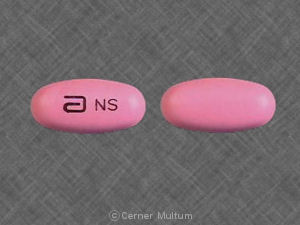Depakote and Alcohol/Food Interactions
There is 1 alcohol/food/lifestyle interaction with Depakote (divalproex sodium).
Divalproex Sodium Food/Lifestyle
Moderate Food Interaction
GENERALLY AVOID: Alcohol may potentiate some of the pharmacologic effects of CNS-active agents. Use in combination may result in additive central nervous system depression and/or impairment of judgment, thinking, and psychomotor skills.
MANAGEMENT: Patients receiving CNS-active agents should be warned of this interaction and advised to avoid or limit consumption of alcohol. Ambulatory patients should be counseled to avoid hazardous activities requiring complete mental alertness and motor coordination until they know how these agents affect them, and to notify their physician if they experience excessive or prolonged CNS effects that interfere with their normal activities.
References (4)
- Warrington SJ, Ankier SI, Turner P (1986) "Evaluation of possible interactions between ethanol and trazodone or amitriptyline." Neuropsychobiology, 15, p. 31-7
- Gilman AG, eds., Nies AS, Rall TW, Taylor P (1990) "Goodman and Gilman's the Pharmacological Basis of Therapeutics." New York, NY: Pergamon Press Inc.
- (2012) "Product Information. Fycompa (perampanel)." Eisai Inc
- (2015) "Product Information. Rexulti (brexpiprazole)." Otsuka American Pharmaceuticals Inc
Switch to consumer interaction data
Depakote drug interactions
There are 425 drug interactions with Depakote (divalproex sodium).
Depakote disease interactions
There are 8 disease interactions with Depakote (divalproex sodium) which include:
- depression
- liver disease
- urea cycle disorders
- suicidal tendency
- HIV/CMV
- thrombocytopenia
- thyroid function tests
- urine ketone test
More about Depakote (divalproex sodium)
- Depakote consumer information
- Check interactions
- Compare alternatives
- Pricing & coupons
- Reviews (334)
- Drug images
- Side effects
- Dosage information
- Patient tips
- During pregnancy
- Generic availability
- Support group
- Drug class: fatty acid derivative anticonvulsants
- Breastfeeding
- En español
Related treatment guides
Drug Interaction Classification
| Highly clinically significant. Avoid combinations; the risk of the interaction outweighs the benefit. | |
| Moderately clinically significant. Usually avoid combinations; use it only under special circumstances. | |
| Minimally clinically significant. Minimize risk; assess risk and consider an alternative drug, take steps to circumvent the interaction risk and/or institute a monitoring plan. | |
| No interaction information available. |
See also:
Further information
Always consult your healthcare provider to ensure the information displayed on this page applies to your personal circumstances.


